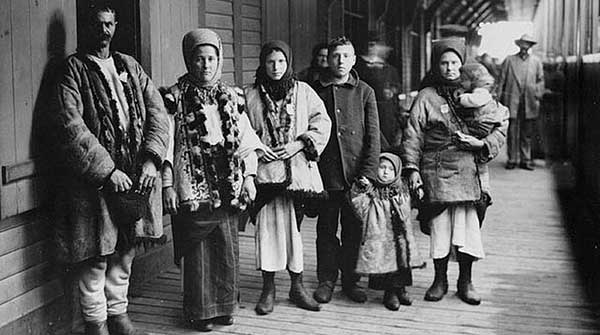Canada has been offering Ukrainians a safe haven for a very long time
 The recent arrival of a new wave of Ukrainian displaced persons to Canada because of the Russian invasion of Ukraine offers a historical déjà vu.
The recent arrival of a new wave of Ukrainian displaced persons to Canada because of the Russian invasion of Ukraine offers a historical déjà vu.
For the recent arrivals – more than 132,000 Ukrainian nationals have entered Canada since February 2022 – Canada is a good place to feel safe from the armed conflict that ravages their homeland. The large Ukrainian Canadian community can also offer advice and guidance regarding their immediate economic and social integration.
Ukraine and Canada share a lived history that has blended through immigration.
Immigration from Ukraine to Canada has a long and distinguished provenance. It has contributed to Canada’s economic development and enhanced its multicultural mosaic. More precisely, it has contributed to populating Western Canada, building the foundations of the Canadian economy, and extending the diversity of Canada’s civil society. Furthermore, the waves of immigration from Ukraine have empowered Canada to become a country of the world and the world within a country.
 Bukovynian family in Quebec enroute to Edna-Star settlement in Alberta, 1897. Library and Archives Canada |
| Related Stories |
| Ukrainians fleeing war face Canadian red tape
|
| Trudeau’s double standards on Iranian immigrants
|
| Increasing immigration increases prosperity
|
The first immigration wave from Ukraine to Canada occurred between 1891 and 1914, with the arrival of an estimated 150,000 Ukrainians. Clifford Sifton, Canada’s Minister of the Interior, who exercised responsibility for the immigration portfolio from 1896 to 1905, encouraged Ukrainian farmers to emigrate to Western Canada – Manitoba, Saskatchewan and Alberta specifically – where they launched the foundations of a thriving agricultural sector and a prosperous economy. Others settled in towns across Canada to work in industrial occupations.
In the first half of the 20th century, Ukrainian Canadians overwhelmingly earned their living in the primary industries, predominantly in agriculture but also in mining, logging and construction. They also worked in building the Canadian railway system. There is no denying that Ukrainian immigrants and their descendants have profoundly affected the economic development of Ontario and Western Canada.
After the First World War, when Ukraine became part of the Soviet Union, Canada witnessed a second wave of Ukrainian arrivals. Most arrived as refugees who settled in established Ukrainian communities, particularly in Manitoba, Saskatchewan, Alberta and southern Ontario. At the end of the Second World War, a third wave of Ukrainians arrived, with approximately 30,000 landing in Canada by 1952, primarily as refugees.
After the dissolution of the Soviet Union in 1991, about 112,000 immigrants came to Canada from Ukraine. As a result of the recent Russian invasion of Ukraine in February 2022, more than 12 million Ukrainians were displaced. In response, Canada’s federal government introduced new measures to fast-track the admission of Ukrainians to Canada.
The demographic impact of Ukrainian immigrants to Canada has been significant. According to the 2016 Census, Ukrainian Canadians number 1,359,655 or 3.8 per cent of Canada’s population, making them Canada’s 11th largest ethnic group. Canada has the world’s third-largest Ukrainian population outside of Ukraine and Russia. More than 110,000 Ukrainian Canadians reported Ukrainian as their mother tongue, and more than half live in Canada’s western provinces.
The current geographic distribution of Ukrainian Canadians reveals that most of them live in Ontario (28 per cent), Alberta (27 per cent) or British Columbia (17 per cent). A large proportion of Ukrainian Canadians live in Manitoba (13 per cent) and Saskatchewan (11 per cent). About three per cent of Ukrainian Canadians reside in Quebec, and about one per cent live in the Atlantic provinces and the territories. All are descendants of the early waves of immigration from Ukraine and have lived in Canada for many generations.
The Russian invasion of Ukraine has disrupted the uneasy calm on the European continent and has elevated political tensions around the world. Indeed, the Russian invasion of Ukraine has demonstrated that peace in our time remains a fragile public good.
Dr. Constantine Passaris is a Professor of Economics at the University of New Brunswick. He is a recipient of the Order of New Brunswick and a recent recipient of the Queen Elizabeth II Platinum Jubilee Medal.
For interview requests, click here.
The opinions expressed by our columnists and contributors are theirs alone and do not inherently or expressly reflect the views of our publication.
© Troy Media
Troy Media is an editorial content provider to media outlets and its own hosted community news outlets across Canada.

